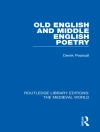“Computing Action” takes a new approach to the phenomenon of narrated action in literary texts. It begins with a survey of philosophical approaches to the concept of action, ranging from analytical to transcendental and finally constructivist definitions. This leads to the formulation of a new model of action, in which the core definitions developed in traditional structuralist narratology and Greimassian semiotics are reconceptualised in the light of constructivist theories.
In the second part of the study, the combinatory model of action proposed is put into practice in the context of a computer-aided investigation of the action constructs logically implied by narrative texts. Two specialised literary computing tools were developed for the purposes of this investigation of textual data: EVENTPARSER, an interactive tool for parsing events in literary texts, and EPITEST, a tool for subjecting the mark-up files thus produced to a combinatory analysis of the episode and action constructs they contain.
The third part of the book presents a case study of Goethe’s “Unterhaltungen deutscher Ausgewanderten”. Here, the practical application of theory and methodology eventually leads to a new interpretation of Goethe’s famous Novellenzyklus as a systematic experiment in the narrative construction of action – an experiment intended to demonstrate not only Goethe’s aesthetic principles, but also, and more fundamentally, his epistemological convictions.
Om författaren
Dr. Jan Christoph Meister is a researcher in the Forschergruppe Narratologie (Narratology Research Group) at the University of Hamburg, Germany, where he is currently working on a project examining the narrative construction of time.












